No references, no jokes, no smart quick replies, no films. No series, no music. No home-cooked food. No working, only scheduled hangouts. Letting everyone speak. Looking at those scenes as if it was a sitcom. Bursts of energy used for cleaning, throwing away clothes in an organized attempt to get rid of anything that is not Nicole Richie, or Peggy Gou, or form-flattering silhouettes for a slightly overweight white girl to hide her Eastern European ass, boobs, plowing arms, motherly feet. Bursts of energy used to finally read something, feeling inspiration inflate and deflate as soon as I take the marker to write something on my expensive duplofan board. Entering the endless TikTok spiral quickly deteriorating from political, funny, and fun clips from around the world to how to be a high-value woman, what is a narcissist, how to find form-flattering silhouettes for a slightly overweight white girl to hide her Eastern European ass, boobs, plowing arms, motherly feet. But, no sleeping pills, no anti-anxiety pills, no pills at all, no alcohol, no such indulgences of the wrong kind. Coffee and cigarettes and Kimchi Shin Ramyun noodles. A huge stack of Kimchi Shin Ramyun noodles waiting for me on my fridge. We have to change in our <3 the logic of the system, says the poster on the fridge. I still believe it, but I tried and got here.
I am stripping myself of anything that is my essence to uncover what lies between my bones and flesh when nothing is okay. It takes effort. Most of the time I want to reply with my long gone wit and I choose not to. It is not my year of rest and relaxation, but it sure feels like it. I want it to be that, but my essence was fighting me. It was not able to succumb to the depths of self-pity I wanted it to.
In one I have to succeed: let’s see what happens when it’s just my ego, my Tumblr and Instagram archive from mostly 2016, and this exercise. I hope it’s more funny than sad, but it’s a difficult task to put ahead of something so unsympathetic as one’s ego.
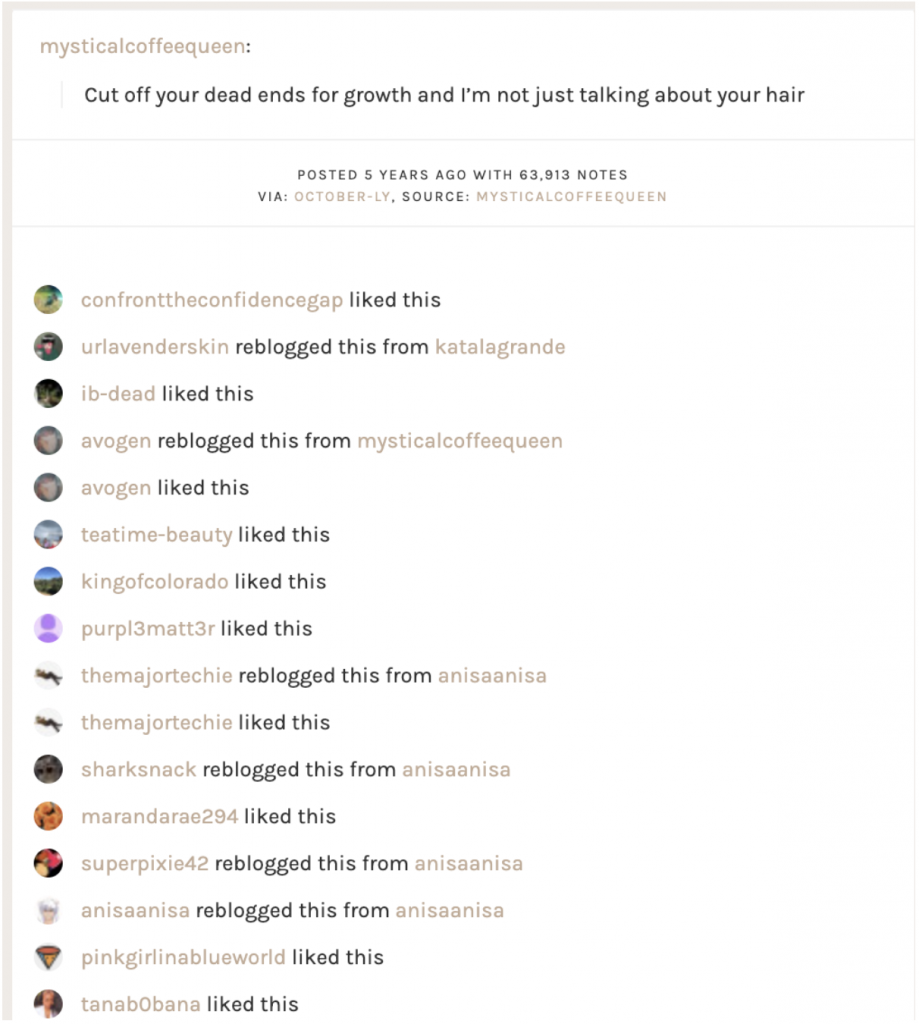
18. 3. 2023
Thinki
19. 3. 2023
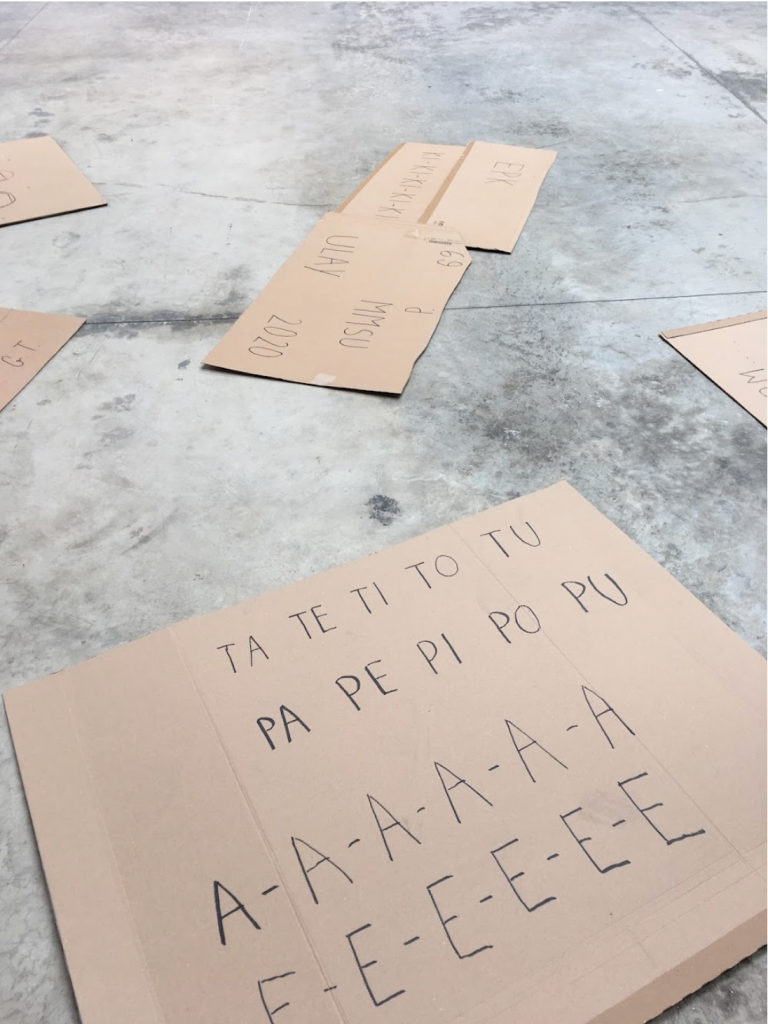 Slaven Tolj
Slaven Tolj
20. 3. 2023
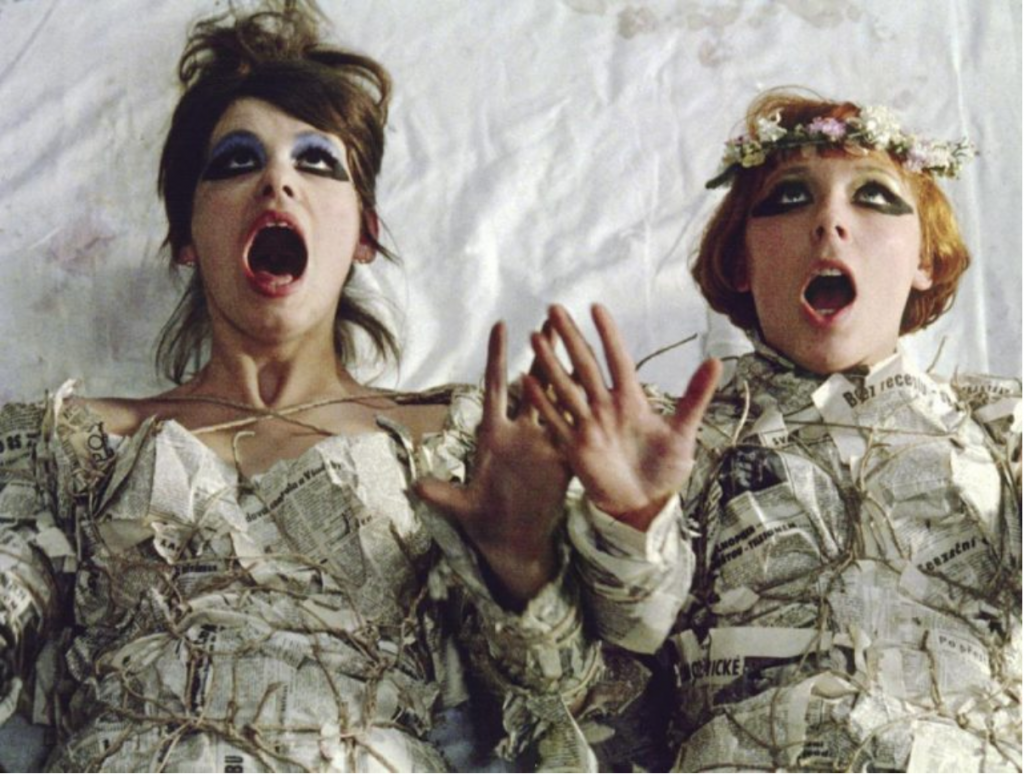
Could it be that this is my actual feminine awakening.
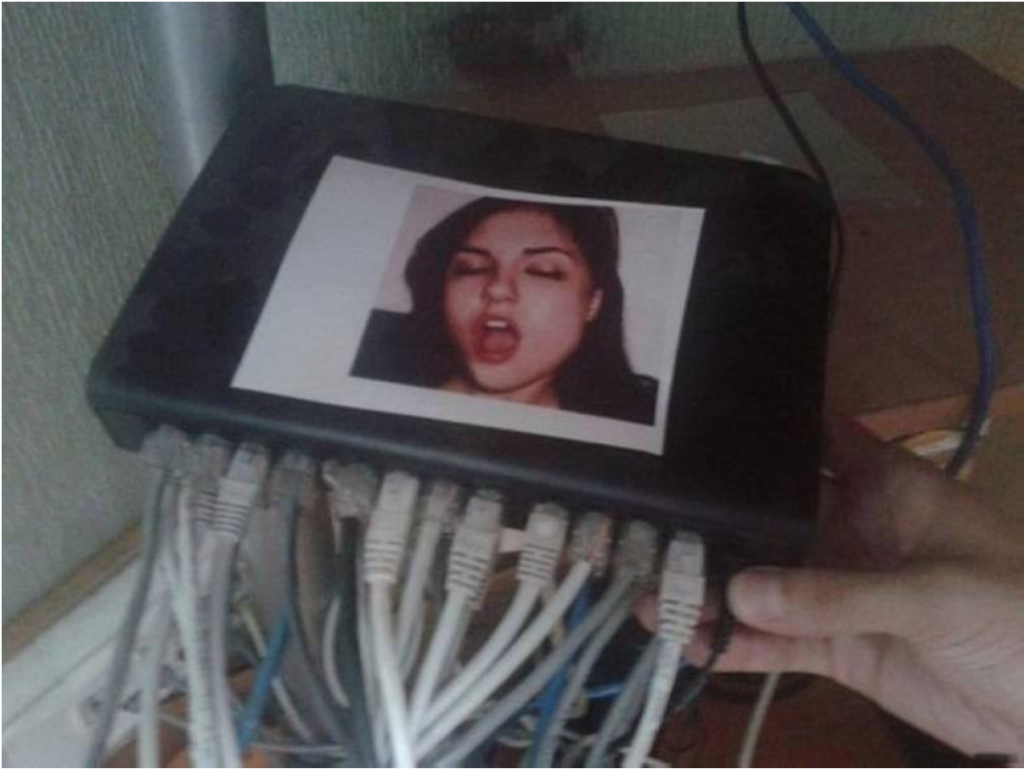
3. 5. 2023 Sarajevo and Belgrade

We circled through Sarajevo for hours, as if it were an endless metropolis from which there was no escape without suffering. Our driver evidently knows Sarajevo worse than even the three tourists I share the van with; he circled back from the Pofalići hill to Marin Dvor, only to get caught in the congestion at the entrance to Hotonj via Koševo. He could have easily picked me up at the Alipašina intersection ten minutes earlier instead of at home more than an hour ago, I’m thinking, my forehead resting against the cold window, staring at signs in both Cyrillic and Latin script. Although, individuals of this sort inspire more trust in me when they lack a mental map of Sarajevo. This is very embarrassing for me to admit.
In his clumsy tango with Sarajevo, one can sense his contempt informed by ethnonational hostility, but I am not interested in that. I am a mature and infatuated woman, which means that, besides a cheese sandwich, I have three books of fiction with me and am completely engrossed in myself and my silly crush.
The book I hastily grabbed is Hanif Kureishi’s “Intimacy”. With Milan shifting gears through Sarajevo’s hills, I’m reading it. I also read it when I was a little girl; I found it repulsive. It was the last book by a male author that I would read for the next few years. In Hotonj, with my forehead pressed against the cold window, ten years later, I closed “Intimacy” by Hanif Kureishi, thinking that I’d find that book in another language and gift it to a man I don’t know but for whom, for no rational reason, I currently believe holds all the love in the world that I need within my body.
I contemplate myself and romanticize my existence, he’s kind of peripheral. Now that I’ve read that book, it’s raining in Hotonj, and I feel the rumble of the van’s body. The next time I encounter my unknown someone, I will miraculously be ten kilograms lighter and even younger, so that I appear unattainable to him.
I’ll probably never make it to Belgrade; that seems likely. None of my friends have managed it in the past year either. Getting to Belgrade requires ten hours and robust nerves. I ate my sandwich already.
21. 3. 2023
It’s my birthday. No one from the team congratulated me, but everything else was good. The admin girl who knew my birthdate is truly an asshole, I didn’t expect her to engage in any kind of emotional labor, but she would have if she wasn’t an asshole. I don’t know how she gets by. Boris’s lecture was mind-blowing. The moment he witnessed and talked about as the main rupture in Yugoslavian everything confirmed my whole existence. This moment was always at the very base of anything I do.
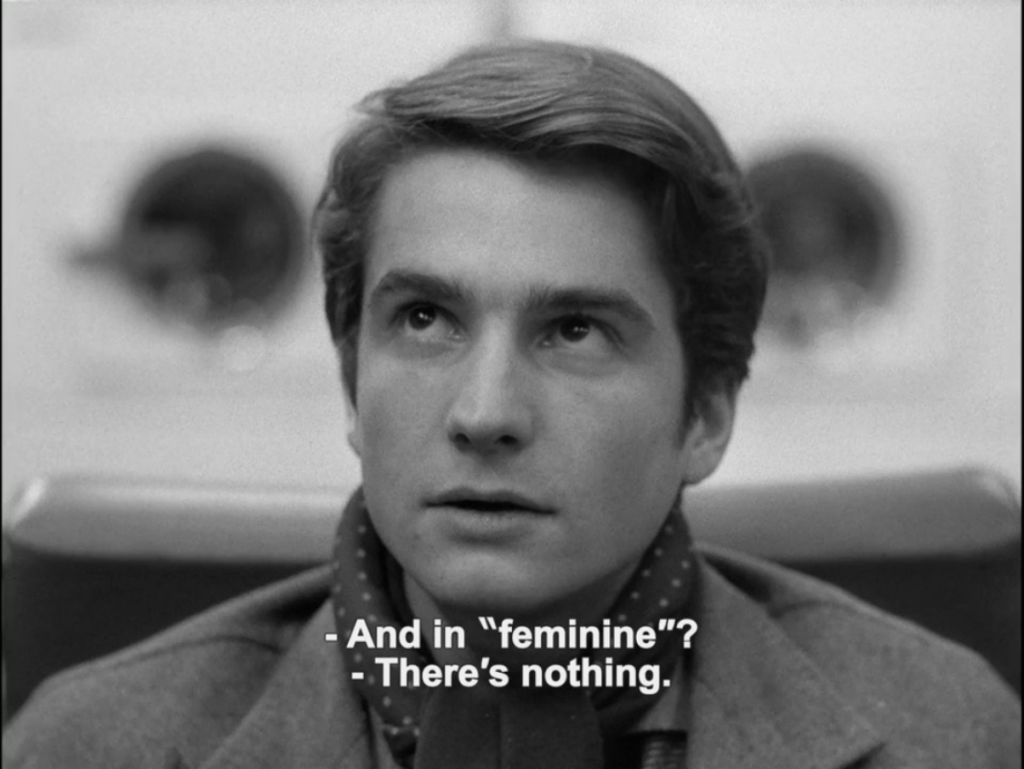
22. 3. 2023
This is the first time I am documenting, writing, and vomiting out words not to be likable, I think. I don’t have a reader in mind, at least. I’m not seeing myself writing as I do it, either. Maybe it’s an exercise in writing a terrible text. I do feel a lot of responsibility for producing something so bad.

25. 3. 2023
I think about courage and I think about gestures. When I think about that, I think about my mentor, who is very brave. She says:
“Figurational – My article employs a method that seeks to capture this collaborative nexus as a figuration of art and cultural anthropology in its historical moment. Norbert Elias’s concept of figuration lends itself to this endeavor. By figuration, Elias means a reciprocal relationship that is characterized by processes instead of static functions; a relationship of interconnection, exchange, and interaction that are all defined by relations. As a figuration, the artistic field and the cultural relativists’ theoretical thinking and anthropological practice can be understood as a dynamic network. In the following analysis, I will adapt Elias’s notion of figuration to develop the concept of “creative figuration,” which allows me to analyze this specific historical constellation—a constellation in which anthropological practice, theorems, motifs, and works are entangled with artistic ones. As an analytical concept, creative figuration sheds light on concrete practices of collaborating within art/anthropology, as well as figurational entanglements with other social fields.
Gesture is thereby conceptualized as a sensible articulation and anthropological expression whose interventionist and countercultural character illustrates the social and political effects of the art/anthropology figuration (section 5).”
The woman knows how to defend herself. I admire her for this.

6. 5. 2023 Berlin and Zavidovići
Jurjevska je noć
Ne vidim ih iz aviona letim između svojih svjetova
Ali moje se prijateljice kupaju pod mjesečinom
Ušla sam u hladni stan
Oprala kosu miloduhom
Stavila krijesove pred vrata
Moje pretkinje, još uvijek,
Kače ljuljačku o drvo ispred kuće
Za svoje djevojčice
Nema moje zemlje
Ti nisi tu
9. 5. 2023 Berlin and Ukraine
Arman is gone. Arman, born on the 21st of March, 1991, in Sarajevo. I was born on the 21st of March, 1994, in Sarajevo. Arman was evacuated from Sarajevo as a baby and grew up to become a French journalist. He gained immense popularity, particularly after he rescued a hedgehog from a trench a few months ago. Today, on the day of Victory over Fascism, he perished in Ukraine. I’ve just learned everything about Arman a minute ago, and I’m weeping, weeping, weeping – I won’t write a poem.
10. 5. 2023 Berlin and Svevinčet
I made Šejla cry, and then she made me cry too. She told me to come to Istria. I moved her to tears because the quotes I selected for her book, she says, were spot on. That act of absolute friendship and understanding moved and softened me. I felt a little proud.
Last year when we were in Istria we didn’t catch Šejla. This trip remains in my memory as if it happened before the war. Or as if it were a TV drama written and directed by Marguerite Duras. Even back then, we weren’t speaking.
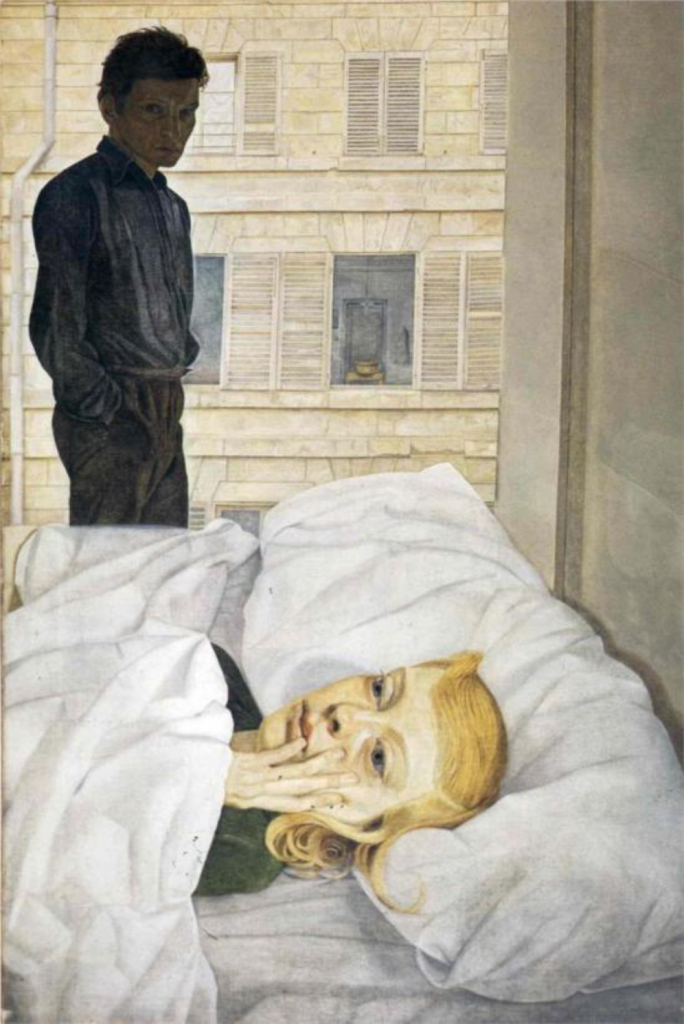
25. 5. 2023 Berlin
my kink is not opening messages and pretending they’re not there
“I am overwhelmed with things I ought to have written about and never found the proper words.”
— Virginia Woolf, Diaries Volume One 1915-1919
30. 5. 2023 Sarajevo
I do feel a lot of contempt for taking pride in my Zotero notes. It’s kind of gross. Sometimes I read them and think they are so cool. It’s giving Susan Sontag when she was, like, 21.
Exodus by dispossession
Adrijana community of the dispossessed
Dispossession of a sovereign individual and unearthing of a more collective structure
on the more fundamental level of individuality which would allow for community building
Butler vs. Landauer
Martin Gubert oboje su citali
Placing moments of disp and com building in trajectory of understanding of social change and revolution
untopian moment of disposesion and community building
to understand structures responsible for understanding founding communities of solidarity Property logic has property
if we need dispossession we need depropertization
Wendy Brown left melancholia: outlet concept clinging, resentment and denial of reality
clinging to lost contents vs reworking them
lose touch with the present than abandon the future or particular theoretical promise, intellectual labor of mourning and focus on revolution, allowing us to parse the concept of revolution and decide what aspects of heritage need to be given up, what can be reclaimed, recovery of utopian horizon with limitation recuperate utopian imaginary in the absence of revolutionary …
we possess horizon, but no means to implement it / brown doesnt capture full spectrum of options, optimistic way provides the background for eva.
and how to do this, through Landauer, exodus notion of revolution, rejects rev oas singular effect, but also benjaminian
radical change sets out from small utopian alternatives
marxist and anarchist converge here
laws of history and laws of nature not interpretation of historical materialism,
no abrupt change, explaining away the problem of transition, if we change the modes of production the rest will fall in place… this idea from economy doesnt apply for social.
EXODUS MODEL OF CHANGE
The contemporary generation has to perish to make room for people match up to such a world
Key reference point for radical political thinking
RADICAL CHANGE
socialist future hope: the present. we do not wait for the revolution, but we start to turn socialism real
deep social reform has to take shape before the revolution
revolutionary period of preparation: new utopian practices have to be decentrally established and collectively practiced
why is revolution impossible on a large scale, why would it be possible on small scale?
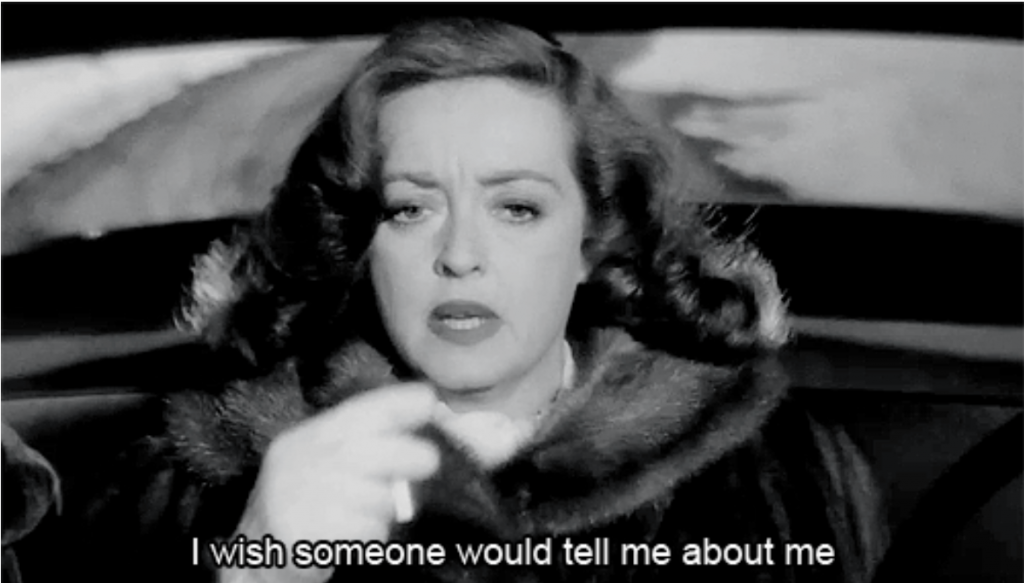
21. 6. 2023 Berlin
The way Rosa Lux was spinning when writing about her relationship with Jogiches to Jogiches makes me think I’ll be fine. I don’t know why I think this, since Rosa was brutally murdered and also sometimes denounced as a feminist. I don’t want to go to jail.
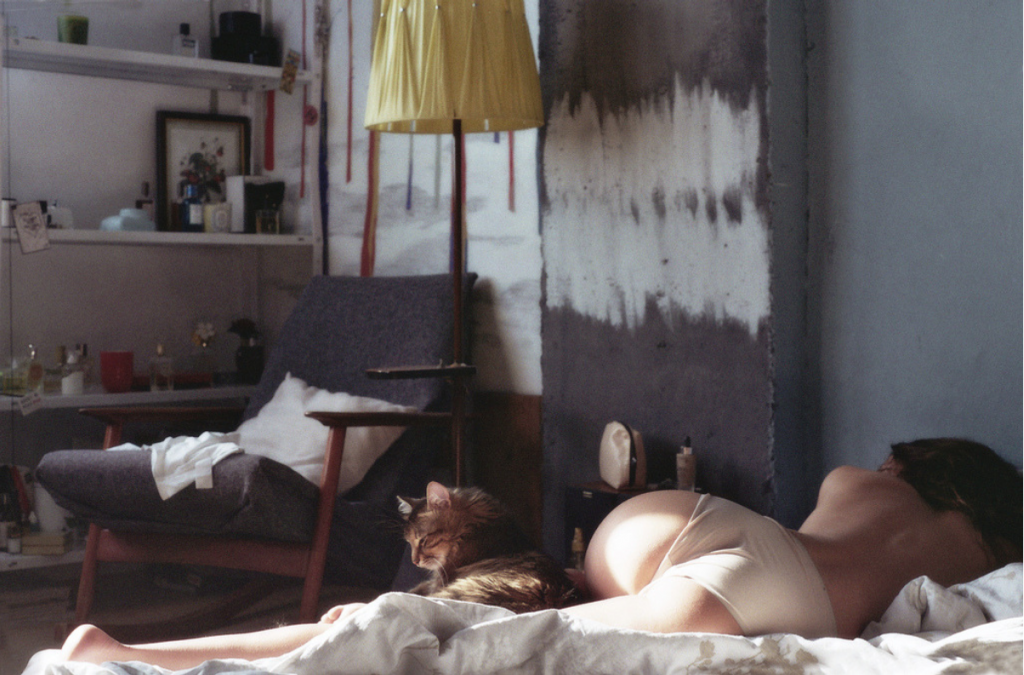
August – Sarajevo
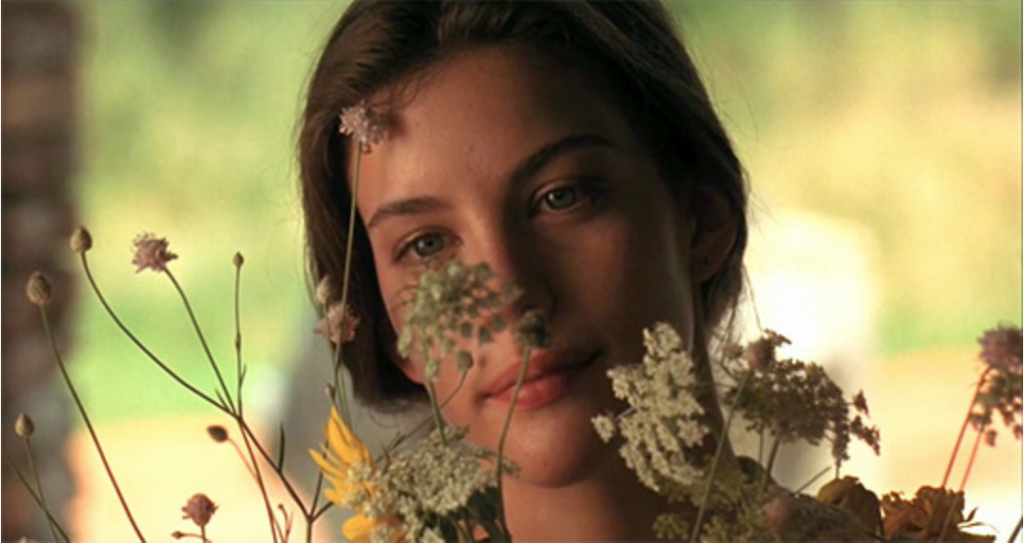
This has to end, I keep repeating to myself, standing up for myself for the first time in a decade.
August – Sarajevo
Sarajevo is falling apart. The atmosphere has never been worse. Like many times before, Karim Zaimović helped me stay sane. I was so happy I met this girl who worked with his mom and sister on displaying his archive in the Museum. It was one of the brightest moments this year, meeting her.
Collecting is a peculiar hobby. Gathering coins, books, records, CDs, or any objects whose material value is surpassed by the significance they acquire when they become part of a collection is a touching, fundamental human activity that reveals both our refined consciousness – compared to other animals – and our animalistic lack of refinement in relation to our awareness. Through the act of collecting, we are no different from our ancestors who gathered raspberries, or birds collecting twigs for their nests. However, by assigning meaning to these objects, we impart a piece of ourselves, a fragment of a conscious contemplation of our lives. Collecting might be more human because it could transcend other aspects of humanity – any identity markers. It doesn’t know identity, yet it makes it real and creates a memory, almost like love. Collecting can be embraced by an eight-year-old girl from King Tomislav Street and a mustached politician driven by the desire for power. Collecting is an unusual hobby – entirely schizophrenic, truly: the leisurely politician may have collected napkins, artworks whose value he assessed himself; ashes from a pipe or something equally sober, and the eight-year-old girl, placing her in 1997 in her neighborhood on King Tomislav Street, may have, following the popular trend among sarajevan eight-year-olds at the time, delighted in collecting bullet casings and fragments of shrapnel. How peculiar!
I, too, am a collector, a very bad one, I must admit. I never collected bullet casings, though – that trend was already fading when I started elementary school with the new millennium, and I held on to napkins for only one season. I unsuccessfully and fleetingly collected hats, greeting cards, nail polish, Pokémon cards, Yu-Gi-Oh cards, beach pebbles, and interesting Lego bricks. Even my endeavor to collect the eight parts of the Harry Potter series failed. I read the eighth book “under the counter” at the long gone Karabit bookstore. I later bought the book, but by then, I had already loaned out the fourth book to someone, leaving my collection forever incomplete. Borrowing, I thought years later, is an older sister to collecting, equally human but instead of playing with consciousness, it toys with forgetting or memory.
In the everyday bizarre Sarajevan and diaspora-Sarajevan interiors, I am sure there are many comics, records, and books that were once someone else’s and then naturally distanced from their owners. The peculiarity of such objects from Sarajevo lies in their fate: while most European items face a dull but peaceful life as part of a collection, forgotten on loan with the possibility of return to the owner, returning Sarajevan items is much more challenging – sometimes painfully impossible.
I wonder where Karim’s Modesty Blaise is. He must have had at least one copy.
Certainly, in his twenty-four years of life in Sarajevo, he must have left many traces in various places, subtle hints of his contribution to the education of his peers, little instances of his, as those who spent time with him will tell me, remarkably and gracefully aristocratic yet modest personality in its quiet and shy manifestation. Serious collectors would approach this kind of collection of traces with the utmost respect, the kind that exists only in the basements of historical archives, and world-class detectives would stab each other in the back in stormy nights, fighting for the secret hidden within these traces.
If only I were a serious collector, or rather, a detective on a not-so-secret mission, I would confirm my thesis that traces seriously and playfully hidden by Karim Zaimović can be found in various homes, carefully constructing a memory of him, a memory that both belongs to me and doesn’t. It’s locked in a stuffy room in the attic of the former Holiday Inn, a hotel now blocked off precisely due to the lack of a culture of remembrance, which sits on the throne of the new space station Marindvor, painted with digital news from the depths of consciousness, appropriating victims at the expense of newly discovered vengeful violence, pathetic fake Bosporus friendships, and rhetorics changing aggressively out of fear. It’s the space station Sarajevo that Karim undoubtedly anticipated and never gave up on.
But I’m not a detective; I’m a resident of that space station, determined to be engulfed by it so I can learn to master it. I wander, if necessary – and it is necessary – throughout the world, searching for Karim’s traces since the very first day I met him. I insist on them wherever I find myself, on the symptoms of the universe that have been appearing for years. First in the form of his dad on the stairs in Mejtaš, just when I first heard about Karim. Then as the kindest efendi who asked me, “Where to, son?” just when I set out for Ćurčića Mosque on May 6th. In the form of a vampire I unmistakably encountered right by Kamerni Theatre. As a radio broadcast playing that exact song just when I was reading about it. In the form of raspberry jam. As my high school teacher who yelled, “Do you even know what raspberry jam is?” She didn’t believe I knew, and I didn’t. As a radio broadcast of “Josif and His Brothers” live at Klub Obala, precisely on the day I read the radio broadcast for the sixth time. In the form of his friends who become mine as I get to know Sarajevo better.
I’m not a good collector, and I’m no detective, so I don’t gather these traces as evidence or parts of a collection. I gave up before I even started searching for Modesty Blaise because, out of respect for Karim, I would never intrude on someone else’s memory of him. However, from all these traces, I’ve realized one thing: Karim wants me, or any of us, to become superheroes. He communicates with us through this city, a city we need to protect and rescue from the petty passions of our peers and their allies who are not up to the task in Sarajevo, as they try to take over, riding the wave of misinformation and glorification of ignorance, forgetting how he managed to survive.
With Karim in mind and pure intentions, in secrecy and in glitter ballet flats, I leap across Sarajevo’s rooftops, rejoicing in every celebration of life and youth, in every cultural space born with a belief in life and rock’n’roll. I move in the shadows so as not to harm the weak, preserving memories and what matters to me, all while wearing a mask with an eye slit. I think of Karim whenever I lose faith and patience, and I know I’m not alone. Karim Zaimović is what makes this city mine, in the same way my friends, my family, and my memories of them make it mine, memories of their memories. I can’t hug him, but he taught me how to travel through space to do so. With Karim in mind and pure intentions, I hold onto my principles and ideas, allowing history only as much room as it should have. And I’m not alone. Superheroes are quite common in this city, silent and witty, just like Karim.
Here’s a flower daring enough to grow in an empty place and in memory. Karim, your traces are safe. All of us who love you in various ways preserve them. I just wish, for once, to hear your voice.
September – anywhere